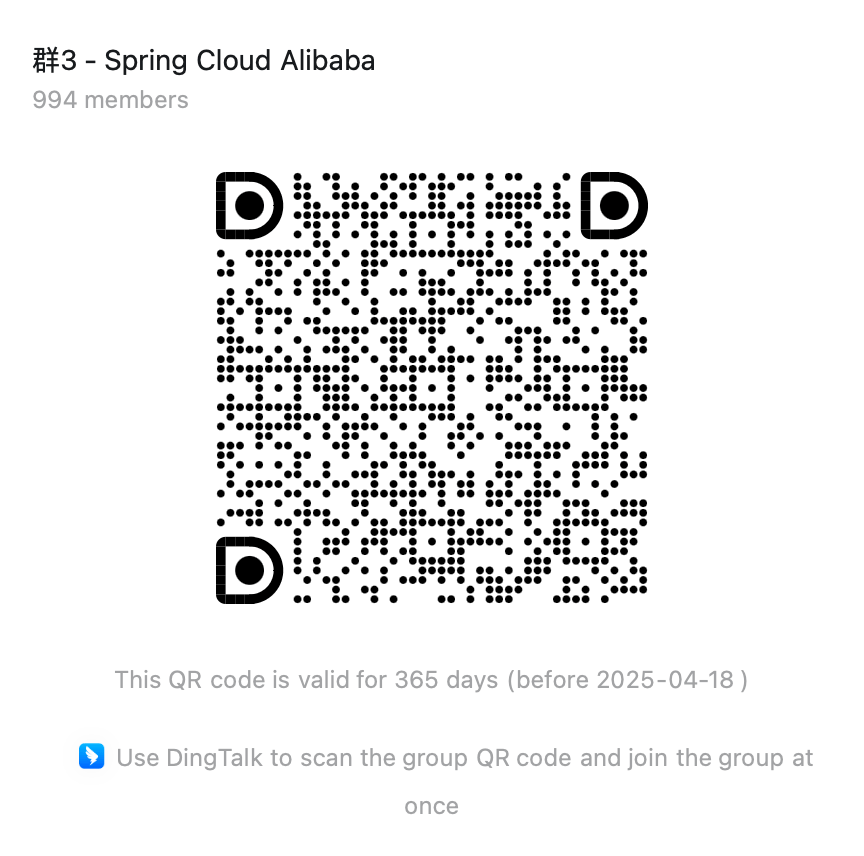向量存储(Vector Store)
:::danger ⚠️ 文档已过期
:::
核心概念
向量存储(VectorStore)是一种用于存储和检索高维向量数据的数据库或存储解决方案,它特别适用于处理那些经过嵌入模型转化后的数据。在 VectorStore 中,查询与传统关系数据库不同。它们执行相似性搜索,而不是精确匹配。当给定一个向量作为查询时,VectorStore 返回与查询向量“相似”的向量。
VectorStore 用于将您的数据与 AI 模型集成。在使用它们时的第一步是将您的数据加载到矢量数据库中。然后,当要将用户查询发送到 AI 模型时,首先检索一组相似文档。然后,这些文档作为用户问题的上下文,并与用户的查询一起发送到 AI 模型。这种技术被称为检索增强生成(Retrieval Augmented Generation,RAG)。
VectorStore API提供了简单易用的接口供开发者对 VectorStore 进行操作,接下来的部分描述相关接口以及一些高层次的示例用法。
API介绍
本节是对 Spring AI 框架中VectorStore接口及其相关类的指南。
Spring AI 提供了一个抽象化的 API,通过 VectorStore 接口与向量数据库进行交互。
VectorStore
以下是VectorStore接口的定义:
public interface VectorStore extends DocumentWriter { default String getName() { return this.getClass().getSimpleName(); }
void add(List<Document> documents);
default void accept(List<Document> documents) { this.add(documents); }
Optional<Boolean> delete(List<String> idList);
List<Document> similaritySearch(SearchRequest request);
default List<Document> similaritySearch(String query) { return this.similaritySearch(SearchRequest.query(query)); }}以及相关的SearchRequest构建器:
public class SearchRequest {
public final String query; private int topK = 4; private double similarityThreshold = SIMILARITY_THRESHOLD_ALL; private Filter.Expression filterExpression;
public static SearchRequest query(String query) { return new SearchRequest(query); }
private SearchRequest(String query) { this.query = query; }
public SearchRequest withTopK(int topK) {...} public SearchRequest withSimilarityThreshold(double threshold) {...} public SearchRequest withSimilarityThresholdAll() {...} public SearchRequest withFilterExpression(Filter.Expression expression) {...} public SearchRequest withFilterExpression(String textExpression) {...}
public String getQuery() {...} public int getTopK() {...} public double getSimilarityThreshold() {...} public Filter.Expression getFilterExpression() {...}}要将数据插入 VectorStore,应先将其封装在Document对象中。Document类封装了来自数据源(如 PDF 或 Word 文档)的内容,并将文本表示为字符串。它还包含键值对形式的元数据,包括文件名等详细信息。
在将文本内容插入 VectorStore 时,使用 EmbeddingModel 将文本内容转换为数值数组或float[],这一步称为向量 Embedding。EmbeddingModel 用于将单词、句子或段落转换为这些向量 Embeddings。
VectorStore 的作用是存储并支持对这些 Embeddings 的相似性搜索,它不会生成 Embeddings 本身。因此,VectorStore 需要和 EmbeddingModel 一起使用。
接口中的similaritySearch方法允许检索与给定查询字符串相似的文档,你可以微调相似性搜索的这些参数:
k:一个整数,指定要返回的相似文档的最大数量。这通常被称为 “top K” 搜索或 “K最近邻”(KNN)。threshold:一个值从 0 到 1 的双精度数,接近1的值表示更高的相似性。默认情况下,如果您设置了阈值为0.75,那么只有相似度超过此值的文档才会被返回。Filter.Expression:一个用于传递流畅 DSL(特定域语言)表达式的类,其功能类似于 SQL 中的 “where”子句,但它仅适用于Document的元数据键值对。filterExpression:基于 ANTLR4 的外部 DSL,接受字符串形式的过滤表达式。例如,对于元数据键如country、year 和isActive,您可以使用如下表达式:country == 'UK' && year >= 2020 && isActive == true。
示例用法
Spring AI Alibaba已经集成了阿里云百炼平台,接下来介绍基于阿里云百炼平台调用 VectorStore API。
准备工作
在开始之前,参考如下链接获取API-KEY:获取API-KEY。 然后,在项目环境中设置API-KEY,有两种方式:
- 方式一:设置
configuration properties:spring.ai.dashscope.api-key为上述API-KEY。 - 方式二:设置环境变量
export SPRING_AI_DASHSCOPE_API_KEY=<YOUR API KEY>
Auto-configuration
Spring AI 为 VectorStore 提供了 Spring Boot 的自动配置。要启用此功能,请将以下依赖项添加到您项目的 Mavenpom.xml文件中:
<dependency> <groupId>com.alibaba.cloud.ai</groupId> <artifactId>spring-ai-alibaba-starter</artifactId> <version>${version}</version></dependency>或者添加到您的Gradlebuild.gradle文件中:
dependencies { implementation 'com.alibaba.cloud.ai:spring-ai-alibaba-starter'}VectorStore Properties
前缀spring.ai.dashscope是用于配置连接至 DashScope 的属性前缀。
| Property | Action | Default |
|---|---|---|
spring.ai.dashscope.api-key | 来自百炼平台的API KEY | - |
所有以 spring.ai.dashscope 开头的属性都可以在构造 DashScopeCloudStore 时传入Runtime Options来覆盖。Runtime Options
DashScopeStoreOptions提供了 DashScopeCloudStore 的配置信息,它通过构造函数来创建选项。
在构造DashScopeCloudStore时,通过将一个DashScopeStoreOptions实例传入,已完成配置。
例如,使用指定的知识库:
DashScopeCloudStore cloudStore = new DashScopeCloudStore( dashscopeApi, new DashScopeStoreOptions("spring-ai知识库"));示例代码
该示例将创建一个DashScopeCloudStore实例,在指定的知识库上执行检索操作。以下是简单的@Controller类的示例,它使用了该 DashScopeCloudStore 实例。
spring.ai.dashscope.api-key=YOUR_API_KEY@RestControllerpublic class StoreController {
private final DashScopeCloudStore dashScopeCloudStore;
@Autowired public StoreController(DashScopeCloudStore dashScopeCloudStore) { this.dashScopeCloudStore = dashScopeCloudStore; }
@GetMapping("/ai/search") public List<Document> store(@RequestParam(value = "message", defaultValue = "What's spring ai") String message) { return this.dashScopeCloudStore.similaritySearch(message); }}Manual Configuration
如果您不希望使用 Spring Boot 的 Auto-configuration,可以在应用程序中手动配置DashScopeCloudStore。为此,请将spring.ai.dashscope依赖项添加到您项目的 Mavenpom.xml文件中:
<dependency> <groupId>com.alibaba.cloud.ai</groupId> <artifactId>spring-ai-alibaba-core</artifactId></dependency>或者添加到您的Gradlebuild.gradle文件中:
dependencies { implementation 'com.alibaba.cloud.ai:spring-ai-alibaba-core'}spring-ai-dashcope 依赖项还提供了对 DashScopeChatModel 的访问。有关 DashScopeChatModel 的更多信息,请参考 DashScope Chat Client部分。接下来,创建一个DashScopeCloudStore实例,并使用它检索文档片段:
DashScopeCloudStore cloudStore = new DashScopeCloudStore( dashscopeApi, new DashScopeStoreOptions("spring-ai知识库"));
List<Document> documentList = cloudStore.similaritySearch("What's spring ai");

